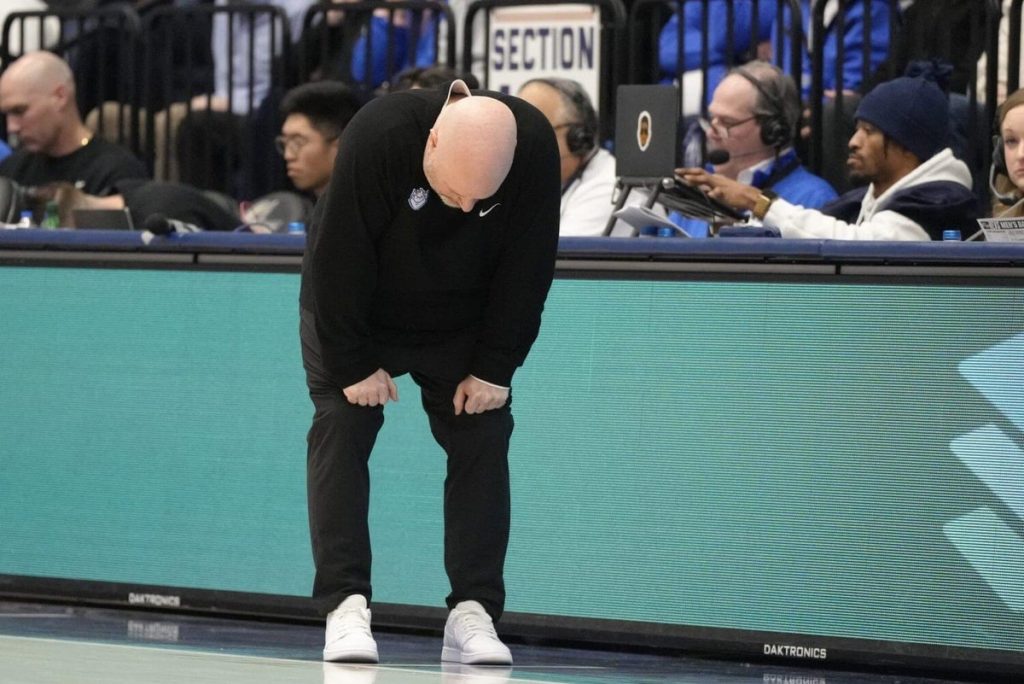Josh Schertz, the 49-year-old head basketball coach at Saint Louis, has built a career on his relentless focus and attention to detail. As a child, he was a tennis prodigy, and as a young coach, he transformed one of the worst Division II basketball programs into a national powerhouse. However, seven years ago, Schertz’s life took a dramatic turn when a mysterious illness forced him to confront his own mortality and reevaluate his priorities. The journey was so profound that it changed how he views life, coaching, and success.
### The Early Years and the Onset of Illness
Schertz’s career was on a meteoric rise before his health began to decline. At Lincoln Memorial University, he had led his team to back-to-back Final Four appearances, earning a reputation as one of the most successful Division II coaches in the country. But in late June 2017, everything changed. Schertz was supposed to meet with a recruit but found himself bedridden, feeling miserably cold and experiencing vivid symptoms: his face and chest would turn bright red multiple times a day, he was nauseous, dizzy, and struggled to keep food down. Despite numerous trips to the doctor and the emergency room, initial tests revealed nothing out of the ordinary. The uncertainty was devastating. “I knew I wasn’t right,” Schertz recalls, but no one could tell him what was wrong. His mind spiraled as he researched his symptoms online, fearing the worst—ALS. The fear became so intense that his doctor eventually prescribed him a note with three words: “You are OK.” Schertz taped it to the back of his phone, a constant reminder to calm his racing mind.
### The Search for Answers and the Toll on His Life
Over the next few months, Schertz underwent a battery of tests—EMGs, endoscopies, and even a visit to the Mayo Clinic. Doctors considered everything from fibromyalgia to Sjogren’s syndrome, but no diagnosis stuck. His primary care physician suggested he might be suffering from health anxiety, but Schertz pushed back. He knew something was wrong. By the time the basketball season started in November 2017, Schertz had lost 44 pounds, subsisting on chicken broth and nutritional drinks. He coached through severe fatigue, dizziness, and cognitive fog, barely able to remember words or focus during games. His wife, Natalia, became his rock, driving him to practices and games while he slept in the backseat. Schertz confided in few people about his struggles, fearing he’d become a distraction to his team. “When you’re coaching a team, the last thing you want to do is have the players thinking about or worrying about anything other than what they need to do to play well,” he explains.
### The Breaking Point and a New Perspective
By the end of the 2017-18 season, Schertz had reached a breaking point. After a devastating loss to Queens in the NCAA Tournament, he broke down in the locker room, sobbing uncontrollably. “I wasn’t thinking clearly or as fast, and I wasn’t doing the job,” he admits. That night, he decided to resign, feeling he could no longer coach at the level his players deserved. But Schertz didn’t quit. Instead, he sought answers from the Mayo Clinic specialists, who eventually ruled out life-threatening conditions and suggested he might be dealing with chronic fatigue syndrome. While the exact cause of his illness was never pinpointed, the diagnosis of “nothing serious” was paradoxically comforting. “I went home without the answers,” Schertz says, “which I guess was a good thing.”
### The Road to Recovery and Renewal
Schertz slowly began to rebuild his strength and confidence. He leaned on his wife and a few close confidants for support, and he kept the note from his doctor—“You are OK”—as a constant reminder to stay grounded. When he returned to coaching, he approached the game with a new perspective. He realized that success wasn’t just about winning but about serving his players and building meaningful relationships. The experience also taught him the value of self-care. Schertz now prioritizes his health, taking vitamins, checking his blood pressure daily, and even sneaking in naps when he can. Every August, he returns to the Mayo Clinic for a clean bill of health, a ritual that reassures him life is good as long as he and his loved ones are healthy.
### A Changed Man and Coach
The 2017-18 season was a turning point for Schertz, both personally and professionally. It forced him to redefine success and find fulfillment in the unconditional love of his family and the trust of his players. When he moved to Indiana State in 2021, he faced new challenges, including his first losing season as a head coach. But instead of feeling defeated, he used the experience to grow. “Everything else is gravy on top of that,” he says, referring to the peace and contentment he’s found in life. Now at Saint Louis, Schertz is leading his team with renewed energy and purpose. After a slow start this season, the Billikens have turned things around, climbing to third place in the Atlantic 10 Conference. But for Schertz, the wins and losses no longer define him. He’s living proof that sometimes, it’s the struggles that make us stronger and wiser.
### Final Reflections on Life and Coaching
Schertz’s story is one of resilience and transformation. He emerged from his health scare with a newfound appreciation for life and a clearer sense of purpose. “Going through the illness strengthened me and matured me, and it forever altered the lens with which I see life through,” he says. For Schertz, the real victory isn’t in the championships or the accolades but in the relationships he builds, the lessons he imparts to his players, and the peace he finds in knowing he’s exactly where he’s meant to be. As he often reminds himself and those around him, life is good when you’re healthy, loved, and at peace. Everything else is just the icing on the cake.









